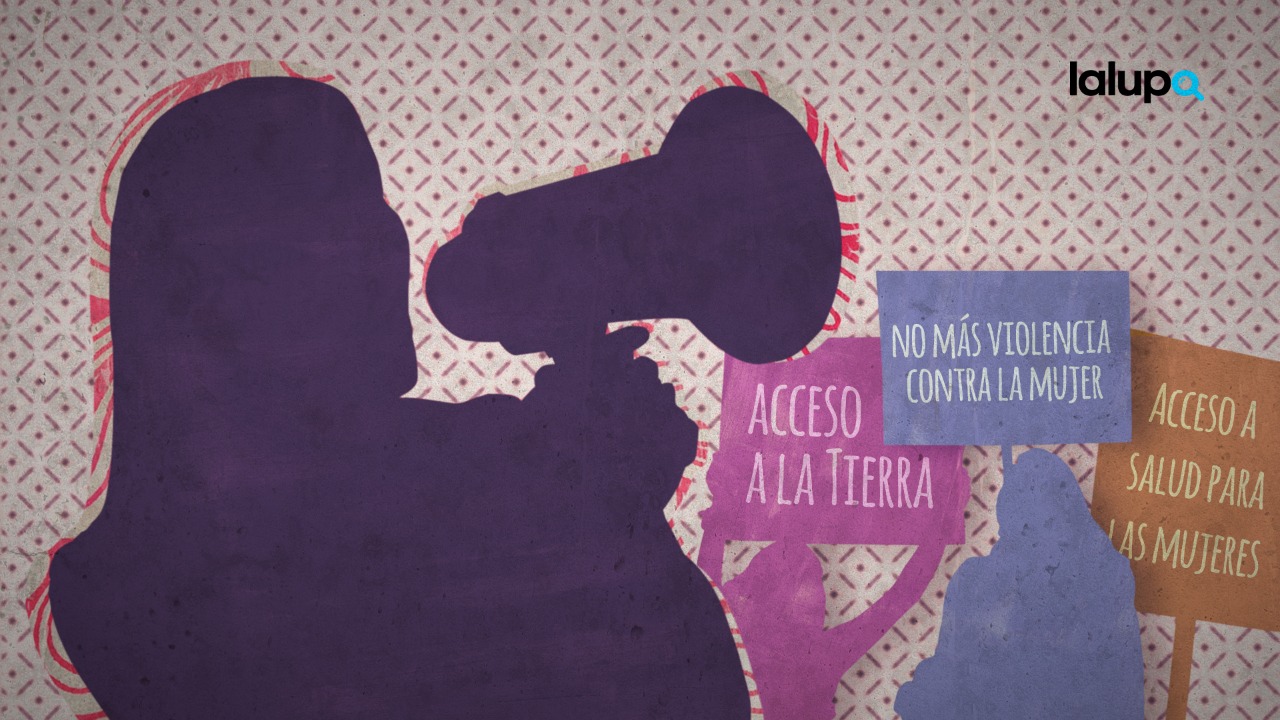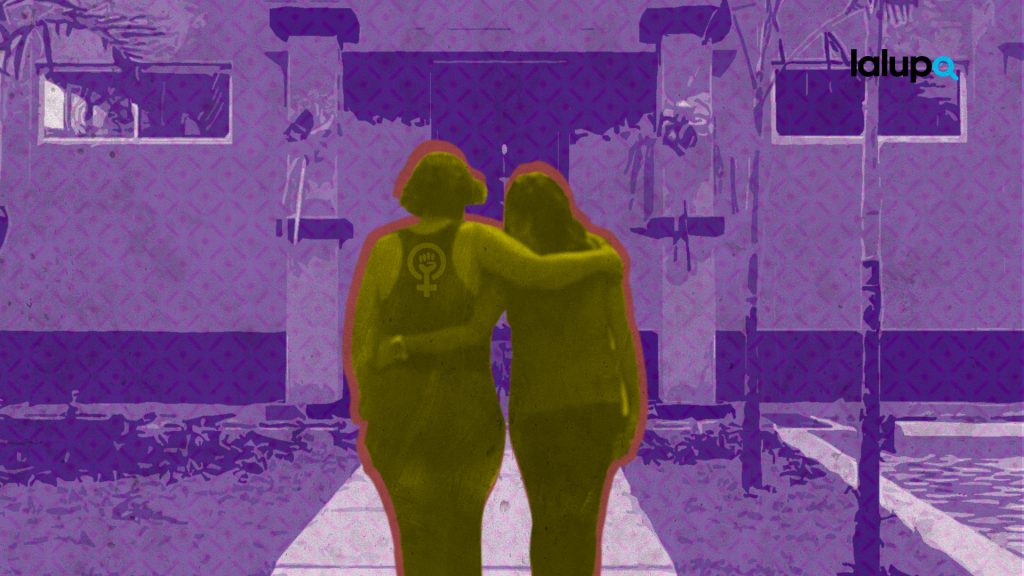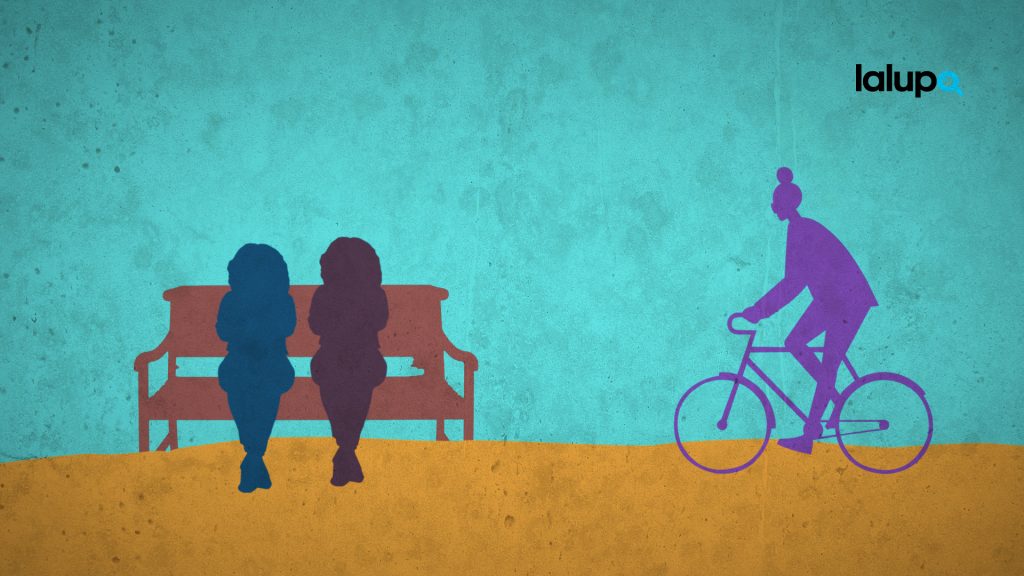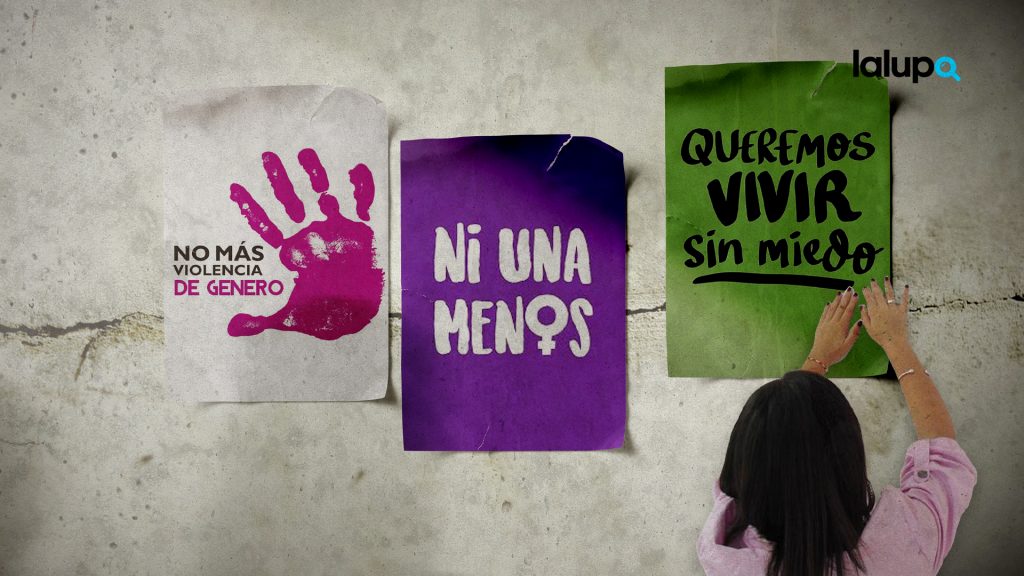Under persecution: the reality of women human rights defenders in Nicaragua
Three women human rights defenders tell the story of what it means to carry out their work in the country and the dangers they face in defending human rights.

Three women human rights defenders tell the story of what it means to carry out their work in the country and the dangers they face in defending human rights.

The reality of women human rights defenders in Nicaragua is hostile. Their work over decades and the spaces they have created to support women are being increasing closed down due to the systematic persecution carried out by the regime of Daniel Ortega and Rosario Murillo against feminists and their organisations.
Many of them who have stayed inside the country are continuing to work with a low profile, clandestinely and anonymously. Others have been forced into exile to save their lives and avoid being imprisoned like others. Nevertheless, all continue with the same commitment to defending human rights and especially to struggle for women’s rights.
Three defenders from different parts of the country tell their stories in the first person. They detail the reality of the women with whom they work and describe the dangers they face.

Being a woman human rights defender in Nicaragua means you risk your life; it means being persecuted for denouncing social injustice; and it means standing up to whole system that constantly violates fundamental rights. Even so, if the clock were put back, I would still dedicate my life to this. I was born to be a woman human rights defender.
I’ve been a feminist human rights defender for 43 years and I’ve observed the evolution and regression of women’s rights in this country. While a few years back we could organise ourselves freely to resolve certain issues we faced, today I have to protect my life, because defending human rights here is considered a crime by this government.
Like almost all the long time feminists, I first got involved in activism through the Nicaraguan Women’s Association Luisa Amanda Espinoza (AMNLAE), after the triumph of the Sandinista Revolution in 1979.
Mothers with disappeared or murdered children, women without partners raising their families alone; these were the kinds of common scenarios with which I worked at that time. We did everything we could for those women, one way or another their situation was connected to the war. We focused on their empowerment and on helping them to see their sons and daughters again. I was only 21 at that time, but I realised I needed to get more involved in defending women’s rights, and not be so dependent on the party (FSLN) as AMNLAE was. After four years I left the organisation. During the following years I worked in other organisations in the area of health with populations that were effectively abandoned after the war, both in Estelí and Matagalpa: people with HIV, rural women, sex workers and anyone who needed quality attention with a human touch.
In the region there was a huge need in terms of sexual and reproductive health, as well as for sex education that wasn’t based on myths, and a humanised attention for every case. So I decided to found my own organisation in Estelí to work those areas that other organisations weren’t covering.
For 22 years we worked in preventing gender-based violence, sexual and reproductive health and in training public sector civil servants on human rights. We went into communities that were difficult to access, where you had to go on foot and where it for 11 months a year it rains and there is only one month of pure sun. Once some people from the Miraflor community in Estelí said to us “after six months you won’t come back here because you wont be able to stand it”. Nevertheless we worked there for 8 long years with young people of both sexes and with adult women about their rights.
That’s how I learned another meaning of being a feminist human rights defender. Being a defender also means witnessing and listening to painful stories all the time. The violence in those communities was constant; it was normal for the women who lived there. They couldn’t say for a single day “today I don’t want to get up to make the coffee because I don’t feel well” or tell their partners “I don’t want to have sex with you right now”. The stories of physical beatings and forced sexual relations ruled every woman’s life.
We tried to work with the men in the communities to get them to change their attitudes, but when we monitored the outcome we realised that they only learned nice words but there weren’t any real changes.
On top of that many of them started to get offended with the work we were doing, because the women started to value themselves and understand that they weren’t slaves, and we always denounced and reported the violence done by the men against them. We were never lukewarm in how we did things.
The hostility against our work worsened after 2018. When we went of some communities we were harassed and called “tranqueras” [the name given to people who made protest barricades after the regime’s killings of students and others], in spite of the fact that we were doing everything possible not to talk about the political situation. But in a government that doesn’t respect human rights, anything we would do was seen to be bad.
We could no longer enter schools where we had been working with teenagers; we were not allowed to accompany women in reporting violence to the police; and we were threatened with the word “plomo” [meaning “lead” referring to bullets] whenever they could.
Finally they cancelled the legal status of our organisation at the beginning of this year, after 22 years of hard work with women and teenagers, with HIV positive people, with child workers and with a large part of the population of Estelí from both the urban and rural areas for whom we’d become a referent.
Even though we don’t have legal status any more, we will continue to work in responding to the demands of these population groups, because this is also what it means to be human rights defenders, putting our energies full time into listening and supporting especially women in these different situations.
In Nicaragua, being a woman, feminist and being organised is becoming increasingly dangerous, according to the Mesoamerican Initiative for Women Human Rights Defenders (IM-Defensoras). Since before 2018, the work of these defenders had been obstructed by agents of the state from the moment Daniel Ortega returned to power. However, after the socio-political crisis of 2018 these women have undergone persecution, criminalisation, torture and exile.
According to IM-Defensoras’ records, there have been 1,897 reports of attacks targeting feminist activists in the Mesoamerican region between January and June this year. This is an average of 300 to 400 a month. These attacks are in their majority harassment and intimidation, physical and verbal violence and cruel and degrading treatment.
The 2021 Annual Report of the Inter-American Commission on Human Rights (IACHR) reports that most of the attacks against human rights defenders are against women specifically: «due to the protagonists’ role they occupy in defending human rights in Nicaragua, which exposes them to differentiated risks because of their gender».
The Commission highlights the cases of at least 13 women defenders of human rights who were illegally arrested and are at present being subjected to cruel, inhuman or degrading treatment. Their families have denounced the fact that they are denied all their most basic rights such as the right to adequate food, access to the sun and the outdoors, medical attention, regular communication with their families and lawyers, as well as the right to due process.
Nevertheless, despite multiple calls on national and international levels, the Ortega-Murillo regime condemned and sentenced these women to up to 13 years in prison for supposed crimes that «undermine national integrity » and «false news», during trials in which there were no judicial guarantees and in which multiple irregularities were witnessed according to the reports of a wide variety of human rights organisations.
Another strategy of the regime to impede the work of feminist human rights defenders has been the use of legislation to limit or block their freedom of association in carrying out their work. Since the approval of the Law to Regulate Foreign Agents passed at the end of 2020, the campaign against human rights, feminist and community organisations «has been brutal», according to activists.
Since 2018 until June this year, 80 feminist organisations were stripped of their legal status because they refused to register as foreign agentsand supposedly because they had broken the General Law for the Regulation and Control of Non-Profit Organisations; the Law Against Asset Laundering, the Funding of Terrorism and the Funding of Proliferation of Arms of Mass Destruction, among others.
Following an arbitrary procedure, their legal status was cancelled and the Police took possession of the organisations’ goods and property, which were then given use by state institutions offering services such as Maternity Houses or medical clinics.
Leaders of other organisations also denounced the fact that, while their legal status has not been removed, they have been refused the renewal of their legal documentation by the Governance Ministry (Ministry of the Interior/Home Affairs) that they need to continue operating. This means the banks have frozen their asset and they have had to close due to this.
“They told us our documents are missing an accent, and then a word, or a letter, and even when we corrected it they would return the document and refuse to receive it again. Every time we spent a lot of money on the papers going back and forward and in the end they completely refused to accept them”, said one-woman defender from Chinandega.
The IM-Defensora network points to how the mass closure of these organisations also has a very serious impact on the rights of women, girls and teenagers, since they are left in a situation of even greater vulnerability and exposure to violence. These organisations were giving psychological, legal and medical support to victims of male supremacist violence as well as offering reflection processes for them to empower themselves and become more aware of their rights and helping them to access greater academic and work opportunities.
But not all the women’s human rights defenders have the same experiences. Those who defend the rights of indigenous peoples, as well as the earth and natural resources tend to be more exposed to violent attacks, both by the state and by companies who aim to expropriate their resources.

Love, commitment and dedication, that’s what being a woman human rights defender means to me. It means listening to what people are really saying and demanding, and acting on this. But being an indigenous woman and human rights defender is different. Our experience is immersed in our culture and tied to the way of life of our original peoples, in my case Creole. Unfortunately, danger is part of the package in our line of work.
Here on the Caribbean coast, as well as struggling for women’s rights we’re struggling for the collective rights of our peoples, such as the right to strengthen our mother tongues; receive an education that is pertinent to our cosmovision; access intercultural health services, where not only are we guaranteed not to get ill, but also where our pain and illnesses are recognised from our point of view. And of course there’s the eternal struggle for the recognition and respect of our autonomy, which means our common lands, our indigenous territories and our natural resources, because when deforestation happens, not only the tree is uprooted, but it also affects our mother earth. Our struggle is not only as women, but also as Miskita, Garífuna, Rama, Mayagna and Creole women.
I got involved in activism when I studied sociology in one of the first indigenous universities of Mexico, thanks to a scholarship. When I was 16 I recognised the importance of strengthening our indigenous identity, as well as women’s rights. Becoming a defender was also influenced by the fact that we’ve had a lot of examples of strong women in my family, women who defend themselves, who speak up and won’t be silenced faced with situations of abuse, male violence or social injustices. I got involved quite quickly in organisations and institutions that work on these issues to be able to contribute to my regions.
I worked in the Southern Caribbean region with women leaders, regional representatives and women in the community on topics such as political participation, identity and human rights. We got women involved in working groups and we met with them, to talk about our problems, come up with joint solutions, and carry out informal education processes.
Now in these times it’s not possible, these are only memories. Even if there are still some spaces where women interact and work on these topics, there is a latent risk of becoming a victim of state violence. even though the government has a discourse about women’s rights and indigenous rights that’s not the way it is. The laws and statutes created are just pantomimes, because they’ve just used them to achieve their party’s aims.
If before we struggled as women to have greater political participation with the «law 50/50» now we’re struggling so that women in public posts are the ones who really represent us. Because that numerical presence has not meant anything for the agenda of Garifuna, Miskita or Creole women.
This government has also just masked the reality of indigenous people using Law no. 28, the Autonomy Statute of the Atlantic Coast Regions of Nicaragua, because it’s not respected. In spite of this law recognising our autonomy and our right to elect our leaders and administer our own resources, they have used it to impose their policies and create parallel governments.
Over the last 15 years, by giving out titles and property rights to our collective lands they have interfered with the deepest aspect of our communities and have usurped the spaces of the legitimate representatives who people have elected. They do one thing with one hand and with the other they undo it.
Even if they give out land titles, in exchange they make a pantomime of the process of consultation on the implementation of projects to extract our natural resources, even when the law says that the processes should be free and fully informed. Over the years they have co-opted the spaces within the communities, coercing people and have imposed their own leaders.
This has meant a lot of hostility, conflicts, separation and division, to such a point that the coast representatives are no longer struggling for our demands for cultural strengthening, access to education, health and a life free of violence, but they’re struggling for the interests of the party of national government.
Now that said, opposing this means experiencing people putting you down with disparaging comments, constant harassment and intimidation, persecution, and in the worse case imprisonment; although I must recognise that on the Caribbean Coast as women defenders we’re less in the spotlight compared to other women in the country, because due to discrimination we’re taken less seriously.
The organisations in which I’ve worked have been closed down one by one, but even so, I continue working with women on an individual basis, so that even within all this turbulent situation, at least we can resist among ourselves and create a better Caribbean Coast for future generations.
According to the report «Nicaragua: year of violence against those who defend the rights of the Mayagna and Miskitu indigenous peoples», people who defend indigenous rights and land rights have always been targeted for attack not only by foreign agents but also by companies who want to extract our natural resources, and the colonising farmers from the Pacific regions who are promoting their own interests. The data and analysis contained in this report indicate that the conflicts over land and the pattern of systematic and generalised violence against people defending their rights have intensified «in a very worrying way» since January 2020.
In 2020 alone there were 13 murders, along with people wounded, kidnapped and forcibly displaced due to these situations, with a total of 49 of Miskitu people between 2011 and 2020. It’s also estimated that around a thousand Miskitu people were forcibly displaced in order to escape the violence.
According to this same report, the violence against these people is framed in the conflict over the control of the land and natural resources. The origin of this conflict is in the lack of implementation of the last phase of the territorial demarcation and titling law for indigenous lands: the remediation, recognition and formalisation of community lands (el saneamiento).
Diverse organisations for the rights of indigenous people have pointed out that many of the lands have been doted with legal titles and recognised for the communities, but the authorities have not relocated the coloniser farmers who have taken possession in these territories.
The organisation IM-Defensoras also flags up the fact that the women defenders of territories and natural resources are those most under attack in the region, on the one hand because of their indigenous cultural identity and on the other because of their gender both of which mean they’re doubly exposed to violent male supremacy.

Defending human rights has meant carrying out my activism in a clandestine and anonymous way, which is why I don’t give my real name, even though I’d like to, because as feminists we have always said our names and demands out loud. But if I do this now it means dealing with the consequences and losing my freedom and being a victim of torture and I’m not willing to lose my life that way.
Nevertheless, my life wouldn’t make sense without the awareness of my rights as a citizen, without a political position and without an active attitude within the society in which I live. In fact I would have loved to have started this earlier.
I got involved in feminism when I was at university, thanks to a teacher who was a feminist and belonged to Grupo Venancia. at her invitation I began to participate in meetings of the organisation and their workshops on self-esteem, empowerment and feminism. I fell in love with the movement.
As a lesbian, I was also interested in the issue of sexual diversity and rights, which was something spoken about very little in my city. I decided to become a defender, deepen my knowledge about human rights and promote this among young women. With a group of women human rights defenders we created “feminist schools” where we spoke about the cycles of violence and we developed projects that included women and our rights. Along with the meetings, we were active in the city and raised our voices in activities in the streets.
With picketing, marches, a drumming group and activities in the central park we spread our messages, and people were very welcoming about the different issues. When we talked about sexual and reproductive health in the park, women in the area came up to us and asked us for more information; when we spoke about sexual diversity, people were curious and joined us in support.
For us it was very important to change collective thinking so that local people were more conscious of their rights and cast aside their prejudices. Even with the authorities we didn’t have problems, at least when my activism began in 2009. Every time we demonstrated, the police would regulate the traffic so that we could protest without problems. Sometimes we’d stand right in front of the institution and demand justice for femicides. We read our declarations to those in charge and on more than one occasion the police chief came out to receive us and promise us that yes they would act to prevent more violence.
The hostilities started against us from 2015 onwards. First we had to ask for permission to hold activities in the street, then the Police put up cordons around us so we wouldn’t move out of a certain perimeter, they would take down the banners we’d install that had feminist messages and they’d question us about who financed them.
So progressively and silently our spaces of protest began to be shut down and any form of protest was stopped, until finally the social explosion occurred in 2018 and the rest is history. Now we’re being careful with our lives in order not to end up in prison.
During all my years of activism I can say that really we did make social change, inside the schools, in the streets and in the institutions. So many times we accompanied women in their denunciations and we moved those denunciations into the social realm, protesting against perpetrators in the streets and in our networks.
Being a defender means being aware of the reality we experiences as women in Nicaragua and how our freedoms are violated, and also it means being in constant fear that something will happen to me. Because by saying I’m a human rights defender means I’m against the government, because the government is against human rights.
So it doesn’t even matter if as defenders we try not to touch the issue of politics because human rights are always a political issue. However, using anonymity and self-care, we will always try to be present for all those women seeking our support, because otherwise they would be left completely abandoned.
